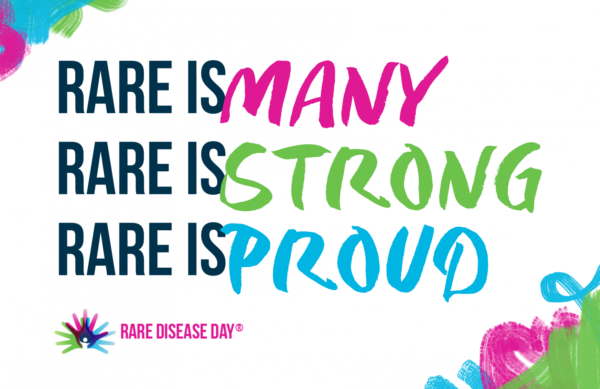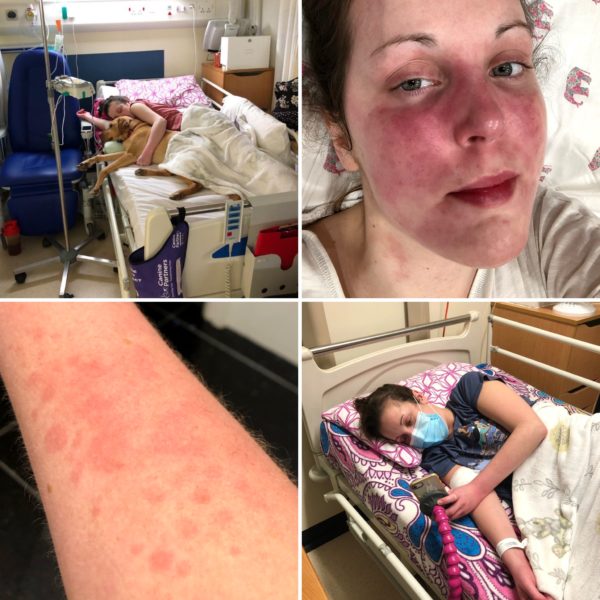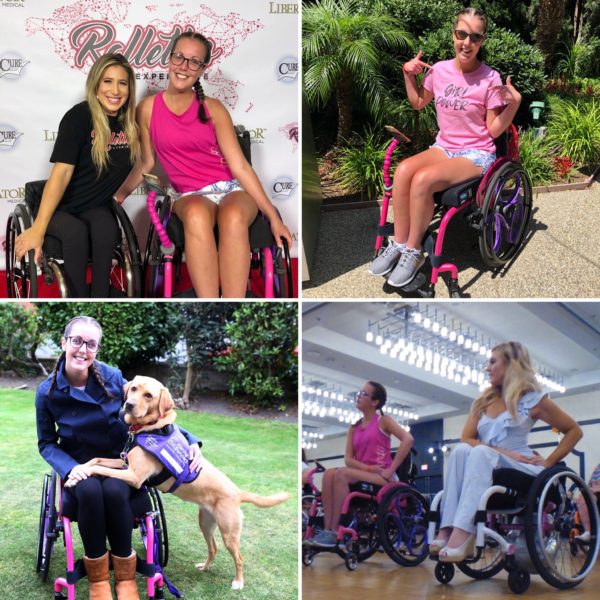

Rare Disease Day takes place on the last day of February each year. The main objective is to raise awareness for all rare diseases and the impact they have on patients' lives. Whilst also prompting researchers, universities, students, companies, policymakers, and clinicians to do more research and to make them aware of the importance of research within the rare disease community. Building awareness is vital because 1 in 20 people will live with a rare disease at some point in their life. Yet the majority of rare diseases have no cure and/or go undiagnosed for many years.

Over 300 million people are living with one or more of the over 6,000 identified rare diseases worldwide each supported by family, friends and a team of carers that make up the rare disease community. But having a rare condition is far from easy and requires a team of people to effectively manage regardless of our diagnosis. For example:
• Fighting For The Correct Diagnosis
• Sourcing Relevant Consultants
• Accessing Treatments
• Acquiring Specialist Equipment
• Learning To Administer Medication
• Coordinating Physical Care
• Reducing Economic Burden
• Monitoring Mental Wellbeing
• Minimising Impact On Family Life
I used to be a fiercely independent dance teacher, who was passionate about helping others and living life to the full. Fast forward a few years to the night before my final teaching exam, where I was rushed into hospital for the first time without any understanding of what was to come. At the time I was told that my immune system had crashed simply because I had overexerted myself, when in fact I had a rare genetic condition that would cause my quality of life to rapidly decline.
Since receiving the correct diagnosis my life became a constant rotation of hospital admissions, appointments, treatments, medication trials, pain and sickness. I also had the difficult task of accepting the fact I could no longer dance, that I was dependent on full-time care and the use of a wheelchair. All of which caused me to feel as if my life suddenly had no purpose and that I no longer had any dignity or privacy.


No matter how effectively you manage your symptoms, your diagnosis can still have enormous repercussions for the whole family. Living with a rare disease becomes a daily learning experience for both the patient and their families, regardless of the diagnosis. However, there are surprisingly some positives to having a rare condition! One prime example is that you become part of an understanding, nonjudgmental and empowering community. We might not have the same diagnosis or symptoms, but we share some of the same emotions and feelings that come along with an experience like this. Having a rare disease is an ever-changing journey, but knowing you are not alone is a very comforting thought.
Do you live, know or care for someone with a rare disease? If so we would love to hear your experiences via the social links below! I also recommend heading over to the Rare Disease Day website to learn more about the long list of rare conditions that exist and how you can get involved today!

Hi, I'm Lauren and I have been living with a collection of disabilities for the past 8 years. I initially had a passion for teaching children with special needs, but my health prevented me from pursuring my dream career. Despite this, I now love nothing more than sharing my experiences to help other people living with disabilities.
Hi, I’m Lori and was diagnosed with Ehlers Danlos Syndrome and a family of co-morbid conditions which has made life highly complex. However I constantly aim to make life as ‘normal’ and fulfilling as possible - and through this, I discovered the benefits of writing about my journey.
 GET IN TOUCH
GET IN TOUCH


